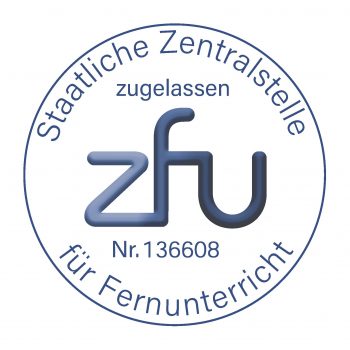Digital Finance und ESG
Who is the university certificate suitable for?
The university certificate is suitable for anyone who not only wants to observe change in the financial world, but also actively shape it - with a sound understanding of digital financial technologies and a clear view of sustainable corporate responsibility. Whether in SMEs, start-ups, the financial sector or international corporations, this course will position you as a future-oriented specialist in an increasingly digital and value-based economy.
The most important things at a glance:
- Duration of study: 6 months + 6 months free extension
- ECTS credit points: 5 ECTS credit points
- Exam form: Online exam
- Admission requirements: none
- Start of studies: at any time
- Credit transferability: M.Sc. Finance (if you have completed a first degree in economics).
- Tuition fees: EUR 165 per month, EUR 990 in total
Digital Finance and ESG - Future-oriented financial management in the digital and sustainable change
The world of finance is undergoing profound change - driven by digitalization, new technologies and the social call for greater sustainability. The "Digital Finance and ESG" university certificate gives you the tools to actively shape this change. As a part-time course, the university certificate is aimed specifically at specialists and managers who want to take on responsibility at the interface of financial technology, digital transformation and sustainable corporate management.
Digital finance - understanding innovation, seizing opportunities
The course begins with an in-depth introduction to the economic drivers of digital structural change. You will learn how customer and provider structures are changing as a result of digitalization and the importance of FinTechs as new market participants. You will examine various digital business models that are setting new standards with falling transaction costs and efficient information processing.
You will gain insights into modern financing methods such as peer-to-peer lending, crowdfunding, crowdinvesting, social trading and robo-advisory. These developments enable a democratization of access to the capital market and open up new ways of financial intermediation.
In addition, you will deal intensively with innovative technologies such as blockchain, cryptocurrencies, micropayment solutions and the use of artificial intelligence in decision-making and information systems. You will learn how these technologies are shaping the future of payment transactions and the capital markets and what IT security and regulatory compliance requirements result from them.
A particular focus is on the use of big data in sales and personal finance management - two areas in which the intelligent analysis of data is becoming a decisive competitive advantage.
ESG - strategically integrating sustainability
The second focus of the course is dedicated to the topics of environment, social and governance (ESG) - i.e. the central factors of sustainable corporate management. You will learn about the most important guidelines and regulatory requirements, including the EU CSR reporting obligation, EMAS guidelines, the German Sustainability Code and the principles of the UN Global Compact.
They work out how companies can integrate environmental, social and governance criteria into their strategies and at the same time contribute to the United Nations Sustainable Development Goals (SDGs). This is not just about complying with standards, but about actively shaping sustainable business models.
A central component is sustainable investment analysis: you will learn about various models for assessing sustainable investments and deal with the challenges of non-financial reporting, including ESG ratings and transparency requirements.

